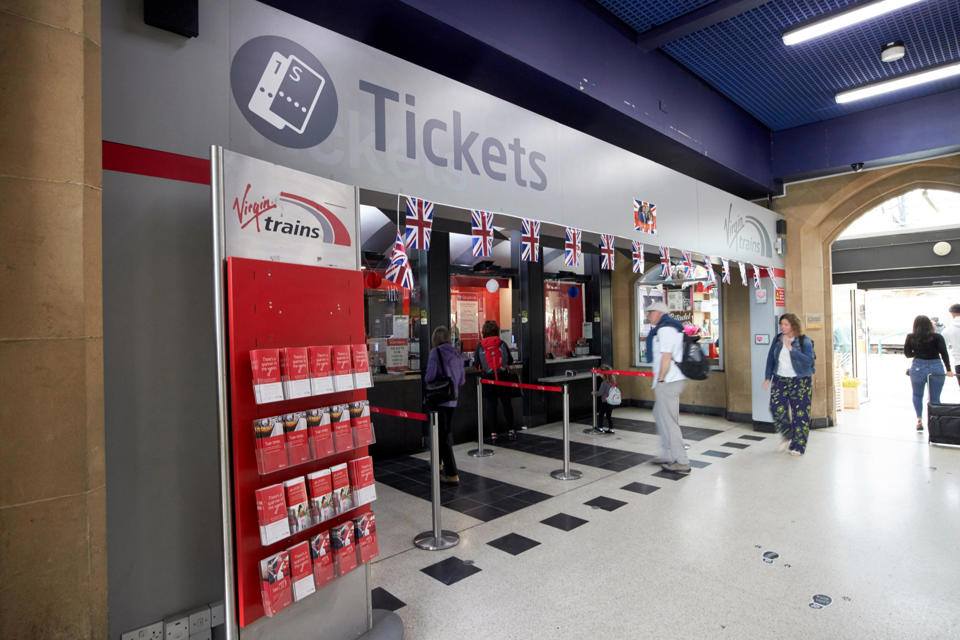Around half of all ticket sales - equating to £4 billion a year - are made through independent retailers, either directly or via the technology they have developed. That figure increases to 90% for online sales, highlighting the importance and success - and potential - of the private sector in rail retailing.
From award-winning apps and loyalty schemes to mobile barcodes and split ticketing, independent retailers are the driving force behind customer-focused innovation that is making it simpler, easier and cheaper to travel by train. And all without government subsidy.
Around half of all ticket sales - equating to £4 billion a year - are made through independent retailers, either directly or via the technology they have developed. That figure increases to 90% for online sales, highlighting the importance and success - and potential - of the private sector in rail retailing.
From award-winning apps and loyalty schemes to mobile barcodes and split ticketing, independent retailers are the driving force behind customer-focused innovation that is making it simpler, easier and cheaper to travel by train. And all without government subsidy.
Independent Rail Retailers (IRR) is the trade body representing many of these trail-blazing businesses, and we are focused on putting customer innovation at the heart of retailing and removing unnecessary complexity. Part of this is about creating a level playing field between retailers, as well as making the best deals available through all sales channels.
Neil, a regular commuter, exemplified one of the current issues on a recent trip between Newcastle and Carlisle - a journey he doesn’t usually make. While he managed to get a good deal, those without the time or the knowledge to shop around could have ended up out of pocket.
“I went to the ticket booth in the station, and they were charging £20. The staff member said I’d get a better deal if I bought my ticket from a ticket machine, but it was charging £22. I decided to look on the Virgin Trains Ticketing app and found a fare for just £9. Fares should be consistent wherever you buy your ticket.”
The rail industry and HM Treasury would both benefit from greater engagement with (and support for) independent retailers.
Their technology already serves as the backbone for online retail, with everyone from train operators to travel agents using their systems to sell tickets online.
But it goes far beyond that. Independent retailers have funded some 80% of the development costs for barcode ticketing, for example, and there are teams of top-tier developers, IT professionals and customer experience experts working on future innovations at zero cost to the public purse.
The new government should be actively supporting and fostering independent retailers, as they continue to champion innovative technologies - not just to reduce costs, but to drive revenue.
The recipe for future success is simple: ensure there is a level playing field in the rail retailing market. That means addressing five key areas:
Barriers to entry: reduce red tape and streamline the accreditation process to encourage innovative, customer-focused players into the market.
Commercial standards: ensure all retail channels operate on the same basis as independent retailers, ending cross-subsidisation by train operators and getting the best value for taxpayers.
Exclusivity: give all retailers access to all ticket types, and ensure all tickets can be fulfilled electronically, to maximise customer choice, minimise cost, and encourage innovative ways to sell tickets on quieter trains.
Passenger compensation: allow independent retailers to process Delay Repay claims to make the end-to-end journey experience as seamless as possible, reduce pain points, and encourage proactive engagement with customers when they are delayed.
Open data: allow retailers to access pay-as-you-go systems, ticket availability feeds and performance/crowding data, to create technical solutions that enhance consumer choice, improve customer experience, and drive passenger revenue (thus reducing government subsidy).
Independent retailers already have a vested interest in keeping the cost of sale as low as possible, as they earn just 5% commission on (B2C) ticket sales. The above improvements would not only make retailing fairer, but encourage retailers to develop new ways to streamline compensation payouts, promote trains with unsold tickets, and even introduce a ‘price promise’ for best-value fares.
But the benefits aren’t all one-way. Not only would taxpayers save millions of pounds, but the IRR has offered to share consumer intelligence such as information on customer habits and purchasing trends, to help grow the market further.
A new Government, through Great British Railways (GBR), needs to be clear on its objectives for rail retailing. But most importantly, it should embrace the private sector to build on what has been achieved so far.
That means a focus on increased competition, private sector innovation and investment, and greater consumer choice.
GBR, for its part, must translate guidance into actionable steps, including the introduction of legal safeguards for online retailers, and prevention of competition law breaches.
And the potential rewards of unleashing the energy, investment, innovation, and consumer focus of independent retailers?
At the IRR, we think it could be measured in billions of pounds through reduced costs and increased passenger numbers. And while the rest of the industry continues to find its way after the pandemic, that has to be a good thing - not just for the government’s finances, but for the future of rail in Britain.
Login to continue reading
Or register with RAIL to keep up-to-date with the latest news, insight and opinion.



















Login to comment
Comments
No comments have been made yet.